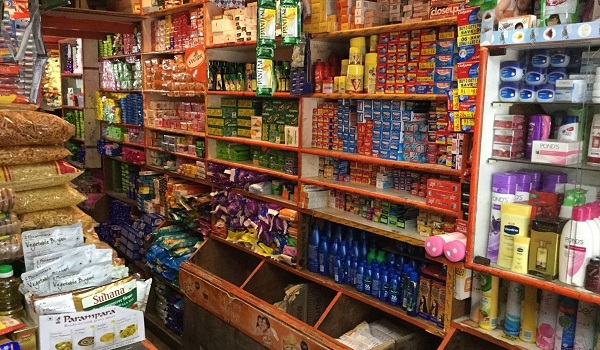The last quarter of 2023 witnessed a notable slowdown in sales for India’s vast network of neighbourhood grocery stores, numbering around 12 million. This deceleration comes as quick-commerce firms seize market share, not only in impulse products but also in large packs of staples, according to consumer goods companies and analysts.
Major packaged goods manufacturers like Marico, Dabur, Emami, and Parle, along with industry analysts, reported that general trade, represented by kirana stores, faced challenges such as slower growth, profitability issues, and liquidity constraints in the previous quarter. In contrast, e-commerce platforms recorded robust growth during the same period.
Marico, known for brands like Parachute hair oil and Saffola oats, acknowledged the struggles in the traditional trade channels while highlighting healthy revenue performance in e-commerce. The company aims to address challenges in grocery stores by optimizing inventory holding costs and enhancing trade schemes.
Quick-commerce platforms such as Swiggy Instamart, Blinkit (owned by Zomato), Zepto, and BBNow are playing a significant role in driving e-commerce sales for FMCG companies, contributing between 30% and 50% of total sales, according to industry executives.
Consumer staples maker KRBL, which offers India Gate rice, noted a surprising surge in demand for large packs of staples through quick commerce, with a staggering 100% quarter-on-quarter growth rate.
Adani Wilmar and LT Overseas reported robust sales growth for staple packs on quick-commerce platforms, previously perceived as channels primarily for impulse categories like soft drinks and snacks.
The rise of quick commerce has prompted FMCG companies to introduce product innovations and ramp up consumer promotions and festive discounts on these platforms, aiming to capitalize on shifting consumer behaviour.
Companies like ITC and Nestle are actively collaborating with quick-commerce platforms to optimize demand forecasting, improve on-platform availability, and drive growth within the e-commerce segment.
Despite the challenges faced by FMCG companies due to demand stress in the mass segment and a slowdown in general trade, they are adopting strategies such as increasing inventory replenishment cycles and real-time data evaluation to mitigate the risks of stock-outs and maintain market competitiveness.


